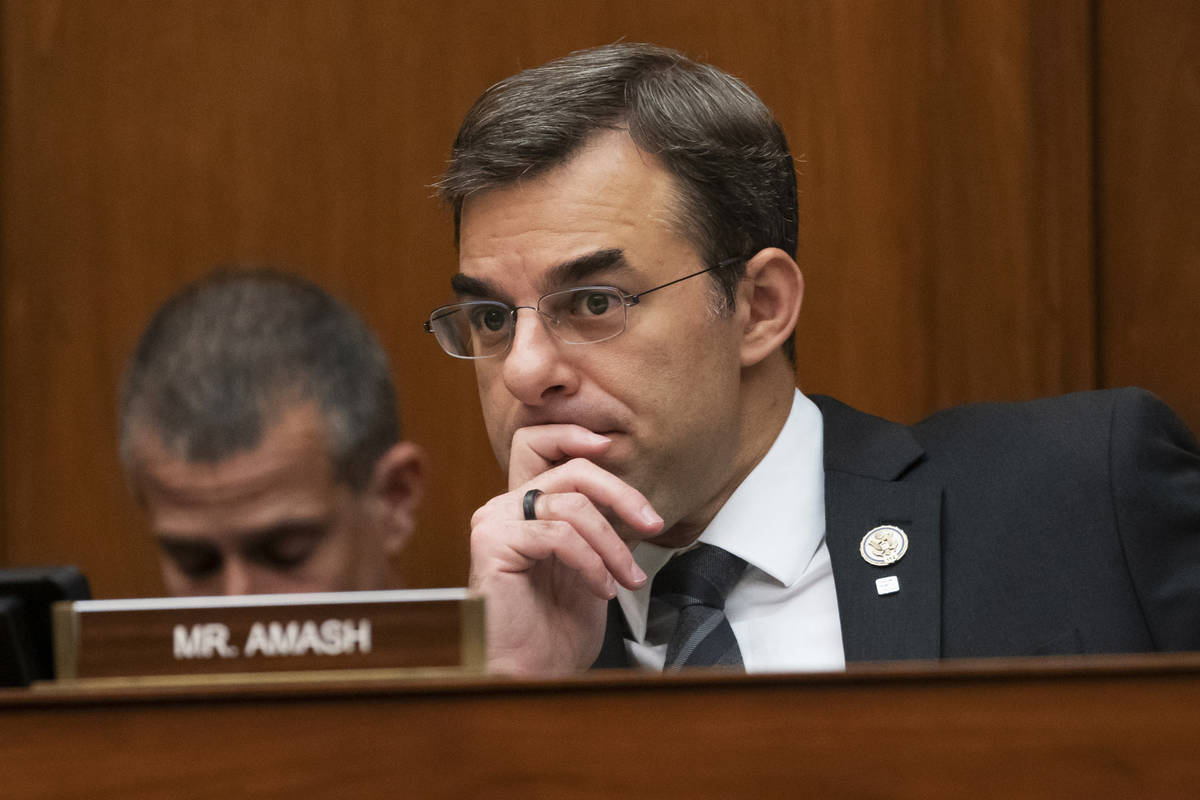Conservative? Don’t like Trump? Maybe Jorgensen’s for you
WASHINGTON — “Whether you love me or hate me, you’ve got to vote for me,” President Donald Trump said at an August rally in Manchester, New Hampshire.
It was his way of saying he didn’t have to broaden his appeal because lukewarm conservatives and moderates have nowhere else to go if they do not want to elect a liberal Democrat in November.
Daniel Fishman, executive director of the small-government Libertarian Party, doesn’t see it that way.
Sure, he acknowledges his party’s 2020 nominee — Jo Jorgensen, who teaches industrial psychology at Clemson University — doesn’t have the credentials or the insider name recognition of the 2016 nominee, former New Mexico Gov. Gary Johnson. Johnson got nearly 4.5 million votes, or 3.28 percent of the national tally.
To put that in context, Trump won 306 Electoral College votes with 63 million votes, or 45.9 percent of the vote, while Democrat Hillary Clinton won 232 Electoral College votes with 48 percent, or 66 million votes. The Green Party won 1 percent of the vote.
“We don’t have the star power, in that Dr. Jorgensen is not a former governor,” Fishman told the Review-Journal. “On the other hand, being the only party with 50-state access running a woman in the age of #metoo against two men who’ve both been accused of sexual harassment and assault, I think gives us a pretty strong base.”
At present, Jorgensen is set to appear on the ballot on 36 states, including Nevada, but Fishman believes the Libertarian Party will qualify for ballots in all 50 states, as happened in 2016.
Option for disaffected Republicans?
The question is: Will there be more anti-Trump Republicans or Democrats unhappy with former Vice President Joe Biden who are willing to vote Libertarian?
“There is a place where the far right and the far left come together, and that space overlaps with Libertarianism, not perfectly,” said Marc Sandalow of the University of California Washington Center. “A Libertarian candidate provides a protest vote for non-Trump voting Republicans as well as non-Biden voting Democrats.”
“The experience of Ralph Nader’s candidacy in 2000 changed the way a lot of voters look at protest votes,” Sandalow added. Nader denies that his Green Party candidacy cost Vice President Al Gore the 2000 election, but many Democrats blame Nader’s narrow vote for swinging Florida into the George W. Bush column. Since then, many on the left see “voting to make a statement rather than to elect somebody” as an error.
Steve Dasbach, Jorgensen’s campaign manager, maintains that while the Libertarian Party draws votes from both major parties, it wins more votes from independents who don’t consider themselves Democrats or Republicans and might not vote at all without a Libertarian on the ballot.
Something for everyone
Fishman sees reason for Republicans and Democrats to look at the Libertarian approach.
“Defund the police is a Libertarian position,” Fishman argued.
At the same time, conservatives angry at heavy-handed stay-at-home orders to slow the coronavirus that took decision-making away from small-business owners and citizens may be looking for an alternative, Fishman argued. “Consent culture is the essence of Libertarianism,” he said.
It will be a challenge to get out the party’s message with Jorgensen, a candidate best known as Libertarian nominee Harry Browne’s running mate in 1996. The Browne-Jorgensen ticket came in fifth that year behind winner Bill Clinton, Republican Sen. Bob Dole, Reform Party candidate Ross Perot and Green candidate Nader.
For a moment it appeared the party would find a star in Justin Amash, the Michigan congressman and vocal Trump critic who resigned from the Republican caucus in 2019. When the high-profile Washington figure announced he would run for president as a Libertarian in April, the faithful had reason to hope to see a candidate making a case for the Libertarian cause on cable news.
Then conservative Never Trumpers complained Amash could draw votes away from Biden and help get Trump re-elected. “Thanks for being the new Ralph Nader,” Never Trumper Tom Nichols tweeted.
By May, Amash announced on Twitter that he was bowing out of the race.
San Jose State University political science professor Larry Gerston saw Amash as a possible game changer because he could tip the balance in his home state of Michigan, where Trump squeaked to victory with a 0.3 percent edge in 2016.
Who?
Hailing from South Carolina, which Trump won by a 15-point margin four years ago, Jorgensen is not likely to tip the balance of the Electoral College.
Joe Hunter, who worked on Johnson’s 2016 campaign and on former Massachusetts Gov. William Weld’s brief challenge to Trump in the 2020 GOP primary, thinks the lack of a “name” nominee is a problem.
“Parties are driven by the candidates,” Hunter said as he wondered how serious the party is about becoming relevant if it doesn’t have a more prominent bench.
Jorgensen won a majority of the vote during the party’s virtual convention on May 23. The third-place candidate was performance artist Vermin Supreme, who had the support of 20 percent of delegates.
Jorgensen’s running mate is Spike Cohen, 37, who originally ran on a platform in which he pledged to give away free ponies, legalize recreational plutonium and go back in time to kill “baby Hitler.”
Dasbach suggested that Cohen has grown into his candidate’s responsibilities. Cohen’s rivals for the No. 2 slot endorsed him “because he is very articulate in explaining Libertarian ideas and doing outreach to young people” and marginalized communities.
The party’s goal, Fishman said, is to qualify for the presidential debates — a nearly impossible feat given the commission’s requirement that candidates show 15 percent support in selected national polls. Dasbach hopes to get there by advertising on TV as polls are taken.
While Trump often boasts about his high approval numbers among GOP voters, it is not universal. Earlier this month, nearly 12 percent of Maryland GOP primary voters supported Weld, and that was two months after Weld dropped out of the primary.
Weld, who also served as Johnson’s Libertarian running mate in 2016, siphoned 12 percent of the GOP vote in New Hampshire, 9 percent in Nebraska, nearly 8 percent in Indiana and 7 percent in Utah.
“Voters couldn’t identify Bill Weld out of a lineup if they tried, which is why he had to switch parties in an attempt to garner attention for his failed bid for president this year. Whoever the Libertarian candidates for president are this cycle, we are sure they’ll be just as successful as Weld in 2016,” Trump regional spokeswoman Samantha Zager responded.
The Lincoln Project, a group of disaffected conservatives committed to defeating Trump, is not willing to risk its goal by supporting the Libertarian candidate. In April the group released an ad endorsing Biden.
Contact Debra J. Saunders at dsaunders@reviewjournal.com or 202-662-7391. Follow @DebraJSaunders on Twitter.
























